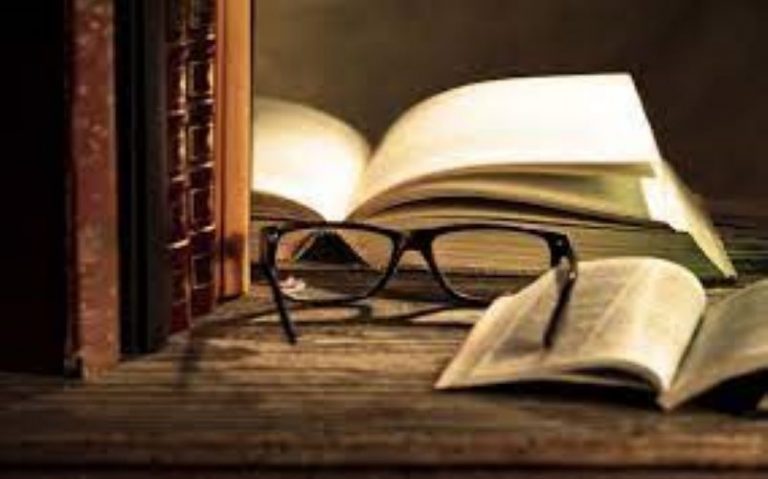
The 19th and 20th centuries witnessed significant developments in literary criticism
SHOUKAT LOHAR
Literary criticism is an essential discipline that analyzes and evaluates works of literature, shedding light on their meaning, structure, and artistic merit. By employing various theoretical frameworks and interpretive techniques, literary critics aim to deepen our understanding of literary works and explore the complex relationship between writers, readers, and texts. Let’s explore the historical background of literary criticism, the different kinds of literary criticism, and how it has evolved over time.
Historical Background
The roots of literary criticism can be traced back to ancient Greece, where philosophers like Plato and Aristotle engaged in discussions about the nature of literature and its role in society. Plato, in his famous work “The Republic,” criticized poetry for its potential to corrupt minds and advocated for the censorship of certain forms of literature. Aristotle, on the other hand, developed a more systematic approach to literary analysis, focusing on the elements of plot, character, and spectacle.
During the Renaissance, literary criticism experienced a resurgence as scholars began to examine classical works and develop new theories about literature. The rise of humanism emphasized the importance of individual expression and led to the emergence of literary critics like Sir Philip Sidney, who defended poetry as a means of moral and intellectual instruction.
The 19th and 20th centuries witnessed significant developments in literary criticism. The rise of modernism and the introduction of new literary movements, such as Romanticism and Symbolism, prompted critics to explore innovative approaches to analyzing texts. Figures like T.S. Eliot, Northrop Frye, and Roland Barthes revolutionized literary criticism by introducing structuralism, post-structuralism, and deconstructionist theories, respectively.
Kinds of Literary Criticism
There are numerous kinds of literary criticism, each with its own set of principles and objectives. Some of the most prominent include:
- Formalist Criticism: This approach focuses on the intrinsic qualities of the text, such as its structure, language, and style. Formalist critics analyze how these elements contribute to the overall meaning and aesthetic impact of the work.
- Historical Criticism: Historical critics examine literature in its historical and cultural context, exploring how societal factors, events, and ideologies shape literary works. This approach helps us understand the social and political implications of a text.
- Biographical Criticism: Biographical critics study the life and experiences of the author to gain insights into the motivations behind their work. By examining the author’s biography, critics seek to uncover connections between the text and the author’s personal life.
- Marxist Criticism: This approach focuses on the examination of literature through the lens of class struggle and socioeconomic conditions. Marxist critics analyze how power structures, capitalism, and social inequality shape literary representations.
Evolution of Literary Criticism
Literary criticism has evolved significantly since its ancient origins. From Plato and Aristotle’s foundational theories to the influential ideas of modernist and postmodernist critics, the field has expanded and diversified, incorporating a wide range of approaches and methodologies.
One notable shift in literary criticism is the move from a text-centered approach to a reader-centered one. Reader-response theory, championed by critics like Wolfgang Iser and Stanley Fish, emphasizes the role of the reader in actively constructing meaning from the text. This perspective acknowledges the subjective nature of interpretation and the multiplicity of possible readings.
Another important development is the integration of interdisciplinary approaches into literary criticism. Critics now draw on fields such as psychology, sociology, feminism, postcolonial literature and other fields.
World’s most famous literary critics, their works and critical insights
Literary criticism has been a prominent field throughout the history of literature. Many famous literary critics have made significant contributions to the understanding and interpretation of literary works. Here are some of the most renowned literary critics and their definitions of criticism, along with references to their influential works:
Aristotle (384-322 BCE): Definition of Criticism: Aristotle’s approach to criticism, as presented in his work “Poetics,” involves analyzing and evaluating the essential elements of literature, including plot, character, language, and spectacle. He focuses on the concept of “catharsis” or emotional purification through the experience of tragic drama.
 Reference
Reference
-“Poetics” – Aristotle’s seminal work on literary theory, where he discusses the principles of drama and provides insights into the nature of storytelling and tragedy.
-Samuel Johnson (1709-1784): Definition of Criticism: Johnson’s critical writings, particularly in his periodical “The Rambler” and his “Lives of the Poets,” emphasize the role of moral and ethical judgment in evaluating literature. He believes that literature should instruct and improve the reader’s character.
-“The Rambler” – A series of 208 periodical essays written by Johnson between 1750 and 1752, which cover a wide range of topics, including literary criticism.
-Samuel Taylor Coleridge (1772-1834): Definition of Criticism: Coleridge’s approach to criticism, as seen in his “Biographia Literaria,” stresses the importance of the reader’s emotional and imaginative response to a work of literature. He introduced the concept of “willing suspension of disbelief,” arguing that readers should immerse themselves in the artistic world of a text to fully appreciate it.
-“Biographia Literaria” – Coleridge’s autobiographical work where he discusses his philosophical and critical ideas, including the distinction between imagination and fancy.
-T.S. Eliot (1888-1965): Definition of Criticism: Eliot’s critical essays, such as “Tradition and the Individual Talent,” advocate for a historical and cultural awareness when approaching literature. He believes that the present works of art are influenced by and connected to the literary tradition of the past.
-“Tradition and the Individual Talent” – An influential essay by T.S. Eliot, published in 1919, which explores the relationship between the artist, tradition, and innovation.
-Northrop Frye (1912-1991): Definition of Criticism: Frye’s work in “Anatomy of Criticism” outlines his theory of archetypal criticism, where he explores universal patterns in literature and categorizes them into four mythoi (modes): comedy, tragedy, romance, and irony. He emphasizes the recurrence of these patterns across different literary works.
-“Anatomy of Criticism” – A seminal work in literary theory, published in 1957, where Frye presents his archetypal and structural approach to criticism.
-Roland Barthes (1915-1980): Definition of Criticism: Barthes, in his essay “The Death of the Author,” challenges the traditional role of the author in literary interpretation. He argues for the “birth” of the reader, suggesting that the meaning of a text is created through the reader’s engagement with it, rather than being dictated solely by the author’s intention.
-“The Death of the Author” – A thought-provoking essay by Roland Barthes, published in 1967, which became a foundational text in the field of literary theory.
These literary critics and their works have significantly shaped the landscape of literary criticism, offering diverse perspectives and methodologies for understanding and analyzing literature.
_______________
 Shoukat Lohar is Assistant professor in English at Mehran University of Engineering and Technology Jamshoro. He can be reached at Shoukat.ali@faculty.muet.edu.pk
Shoukat Lohar is Assistant professor in English at Mehran University of Engineering and Technology Jamshoro. He can be reached at Shoukat.ali@faculty.muet.edu.pk